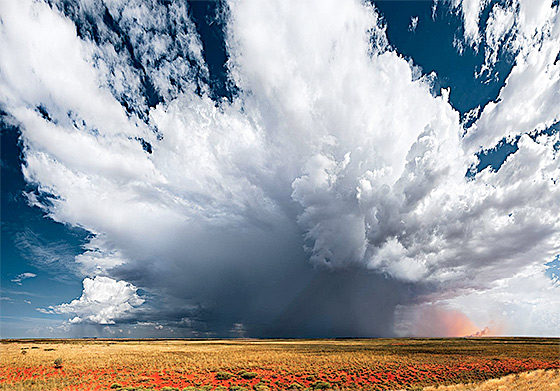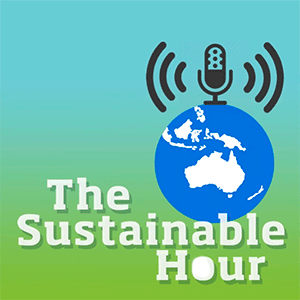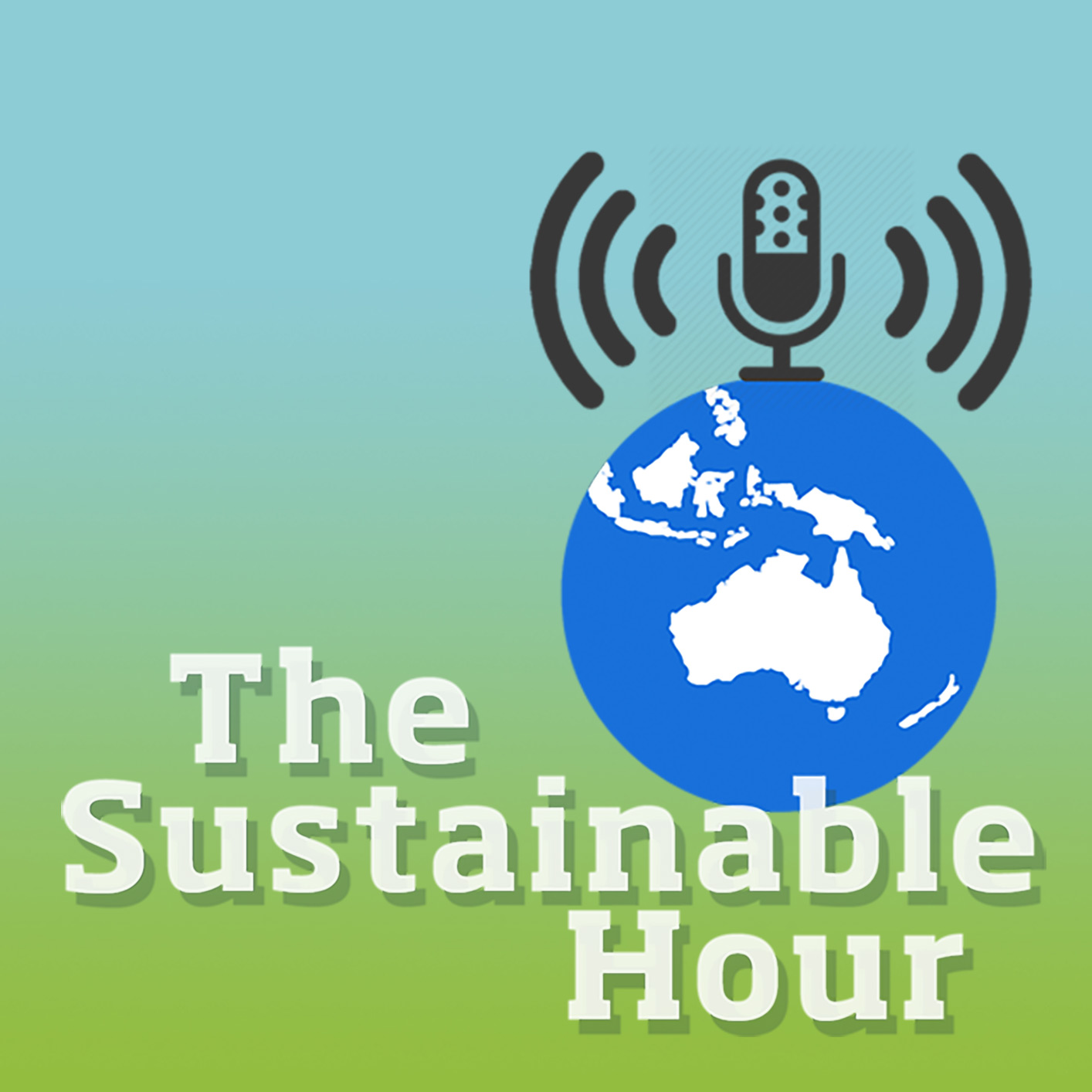
Podcast: Download (Duration: 1:00:00 — 17.2MB)
Subscribe: Apple Podcasts | Spotify | Android | RSS | More
Today’s show may sound much the same, but producing it was much, much different. We all get so much out of doing The Sustainable Hour that when our radio station The Pulse shut down on Monday, we were determined to continue to get The Hour to air.
Zoom came to the rescue.
Last year, Mik spoke at conferences and seminars of the role that the London railway tunnels, which doubled up as air raid shelters during the Battle of Britain, played in firming the British people’s resolve to not give in to Hitler’s constant bombing by planes through the nights. While sitting in these tunnels, they came together, supported each other and planned what to do when they went home again. Richard Overy, a professor of history at University of Exeter, noted that “British society became in many ways strengthened by the blitz, and more, rather than less, determined to stay the course.”
Zoom really has the potential to play this role as our modern-day ‘tunnel’, as we chart our course through the Covid19 crisis.
As usual we start with Colin Mockett joining us – this time for a general discussion around the impact that the Covid19 virus pandemic. Four of us each in a separate location chatting away as if we were in the same room. We know right from the start of the hour that Zoom will be the way to go while we don’t have access to our FM radio climate bunker in Geelong.
Our first guest is Joseph Barnes-Hill from Save for the Planet. Joe has teamed up with Dave Maher and Elly Tucker from Ecosystems Restoration Camps – a group we’ve featured before. Ecosystems Restoration Camps have big plans to establish on-ground regenerative farming teaching and learning places where people can come and get hands-on experience using regenerative farming techniques.
Joe uses his experience in the solar industry as well as his tree planting business to help raise the necessary finances to get the camps up and running. Exciting times for these guys – so much potential to play a huge role in helping us navigate the climate emergency we are already facing.
We then hear from Peter Andrews, the Australian father of restoring ecosystems who explains what we need to do – plus expresses his frustration at the slow uptake of his ideas. He also explains the science which fortifies his work. The importance that plants play in regulating rain in these times when droughts have a firm grasp of much of our country.
Our first zoom-edition of The Sustainable Hour concludes with Jackie Matthews excitedly explaining how she is going to home school her kids while they aren’t able to go to school. This starts a spirited discussion on the use of technology like Zoom and Skype to provide endless possibilities for people to learn and interact while in self-isolation.
We hope that you enjoy the show as much as we did in putting it together. Until next week, use your digital skills, or start aquiring them, so you can enter The Tunnel together with the rest of us. Now more than ever is the time to find the courage to step up and be the difference.
“Suddenly we are being much more effecient, and I can’t see that stopping. This is a gamechanger.”
~ Colin Mockett, about The Sustainable Hour’s move to a ‘virtual radio studio’ via Zoom
→ Subscribe to The Sustainable Hour podcast via iTunes or Stitcher
Acknowledgement
We at The Sustainable Hour would like to pay our respect to the traditional custodians of the land on which we are broadcasting, the Wathaurong People, and pay our respect to their elders, past, present and future.
The traditional owners lived in harmony with the land. They nurtured it and thrived in often harsh conditions for millenia before they were invaded. Their land was then stolen from them – it wasn’t ceeded. It is becoming more and more obvious that, if we are to survive the climate emergency we are facing, we have much to learn from their land management practices.
Our battle for climate justice won’t be won until our First Nations brothers and sisters have their true justice. When we talk about the future, it means extending our respect to those children not yet born, the generations of the future – remembering the old saying that…

“We do not inherit the Earth from our ancestors. We borrow it from our children.”
The decisions currently being made around Australia to ignore climate change are being made by those who won’t be around by the time the worst effects hit home. How utterly disgusting, disrespectful and unfair is that?

“The most important word in today’s world is ‘together’.”
~ Jan Eliasson, UN Deputy Secretary-General

Interview with Joe Barnes-Hill about regenerative ecocamps
. . . . . . . . . . . . . . . . . . . . . . . . . . . . . . . . . . . . . . . . . . . . . . . . . . . . . . . . . . . . . . . . . . . . . . . . . . . . . .
Interview with Peter Andrews about natural sequence farming
. . . . . . . . . . . . . . . . . . . . . . . . . . . . . . . . . . . . . . . . . . . . . . . . . . . . . . . . . . . . . . . . . . . . . . . . . . . . . .
Coronavirus
“The corona response has shown us a path forward.”
~ Our Changing Climate

→ ABC News – 22 March 2020:
Once the coronavirus pandemic is over, we will return to a very different airline industry
“The airline industry will wear the scars of the coronavirus pandemic for a very long time.”
→ The New Daily – 25 March 2020:
Coles and Woolworths relax fruit, vegetable specifications as COVID-19 and drought tightens stock
“The specifications haven’t changed in our business, but what has happened is that the second-grade product — that in an oversupplied market never used to have a home — all of a sudden has a value. So we are able to move some out-of-spec products through other avenues,” said Troy Qualischefski from Qualipac Produce in the Lockyer Valley.
→ ChatterPack – 17 March 2020:
A list of free, online, boredom-busting resources!
“Explore the world from the safety of your home, and please stay safe.”
. . . . . . . . . . . . . . . . . . . . . . . . . . . . . . . . . . . . . . . . . . . . . . . . . . . . . . . . . . . . . . . . . . . . . . . . . . . . . .
“There is a way out, but it is not the way we came”
90 college, community and commercial radio stations on three continents.
. . . . . . . . . . . . . . . . . . . . . . . . . . . . . . . . . . . . . . . . . . . . . . . . . . . . . . . . . . . . . . . . . . . . . . . . . . . . . .
Simple skills for self-sufficiency
With more and more of us required to self-isolate in the coming weeks and months, we are going to need practical skills to get us through this time of quarantine. With this in mind, Pip Magazine have decided to roll out a Simple Skills for Self-Sufficiency Video Series. Each week one of the Pip team will share a project to take you one step closer to a more self-reliant life. They’ll have videos on growing and foraging for food, making household staples like sourdough bread, butter and cheese…
→ Read Pip Magazine’s newsletter
. . . . . . . . . . . . . . . . . . . . . . . . . . . . . . . . . . . . . . . . . . . . . . . . . . . . . . . . . . . . . . . . . . . . . . . . . . . . . .
. . . . . . . . . . . . . . . . . . . . . . . . . . . . . . . . . . . . . . . . . . . . . . . . . . . . . . . . . . . . . . . . . . . . . . . . . . . . . .
Enormous blind spot
“The whole world is currently obsessed with the COVID-19 pandemic. The media is providing saturation coverage, governments are taking drastic actions, and people are hoarding food, toilet paper, and masks. This reaction is understandable and it is a major threat that needs to be managed decisively and competently.
However, we are simultaneously neglecting a much larger and more dangerous threat, something which could ultimately result in humanity’s extinction, or at least make our existence extremely difficult. That is, the rapid and ubiquitous destruction of the biosphere that sustains all life on earth.
Humans are great at responding with speed and vigour to imminent threats like pandemics, wars, and natural disasters. However, we have an enormous blind spot when it comes to longer-term threats and are seemingly incapable of mustering the sense of urgency needed to solve them. We must overcome this shortcoming.”
“The experts say that our planet’s entire biosphere is being viciously assaulted by human activity and that we must urgently change course or jeopardise the survival of most species including our own. How can any sane and ethical person ignore that call? Furthermore, a shift to a green economy might actually be cheaper than business as usual. It is essential to recognise that we can’t allow the negligent procrastination and half-measures to continue. If we are going to avert (or at least mitigate) disaster, we must act now!”
~ Adam Thyer, founder of GreenExecutive

This is a place where you can mark where you’d like to see infrastructural improvements
as far as your safety as a bikerider is concerned
. . . . . . . . . . . . . . . . . . . . . . . . . . . . . . . . . . . . . . . . . . . . . . . . . . . . . . . . . . . . . . . . . . . . . . . . . . . . . .
→ Podcasts and posts on this website about climate emergency
→ Latest news on BBC about climate change
No live streaming
Due to the coronavirus lockdown, The Sustainable Hour is no longer streamed live on the Internet, but we publish the podcast every Wednesday at 11am (Melbourne time). So to listen to the program, we recommend you subscribe to the podcast in your podcast player.
Podcast archive
Over 300 hours of sustainable podcasts
Listen to all of The Sustainable Hour radio shows in full length:
→ Archive on climatesafety.info – with additional links
→ Archive on itunes.apple.com – iPhone friendly
Help us promote sustainable living

1. Print this A3-poster and put it on a wall or a board at your work place, a local café, shop or where ever you think there’ll be people who’ll find this information interesting.
2. Go to our Facebook-page and give us a click on the LIKE-button.
3. Let the The Sustainable Hour’s listeners know about your green product. To become a business supporter or sponsor, contact: Simon Finch, Marketing & Business Development, 947thepulse.com – Geelong’s Premier Community Radio Station.
4. Maybe support us financially? Even a small donation will make a difference – in particular with printing expenses.
Receive our podcast newsletter in your mailbox
Email address and surname is mandatory. All other fields are optional. You can unsubscribe at any time.
Find The Sustainable Hour on social media
Facebook:
www.facebook.com/TheSustainableHour
→ Overview of all podcast front covers
Twitter:
www.twitter.com/SustainableHour Twitter tag: @SustainableHour
YouTube channel:
www.youtube.com/c/thesustainablehour
Share on Twitter
→ Share this podcast on www.twitter.com






I listened to the previous show yesterday while walking about by myself and saying hello to everyone. It was very informative. One lady noticed me reading and we got talking two metres apart. She said, out of the blue: “In a way I welcome this. Our whole economy was overheated. We have become too frenzied too excited. its nice to have a PAUSE even for the children to get bored and then get inventive.”
I am under no illusions that in 18 months.or so we wont get back to rampaging consumerism unless we put in place now some of the measures we need. I think its up to us to spell them out.